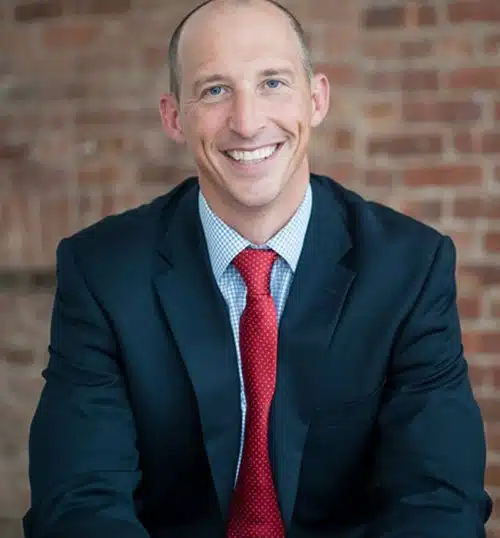Here’s a sobering statistic. According to the Social Security Administration, a 20-year-old has a more than one-in-four chance of becoming disabled before reaching retirement. Surprising, huh? Unfortunately, facing a disability and loss of income is more common than you might realize.
If you were sick and injured, and unable to work normally, how would you cover your existing income? Most people don’t have enough in savings to live off of, especially if they’re young and retirement is still far off. You might consider Security Disability Insurance (SSDI) from the government. But it’s difficult to qualify for and the payouts are modest at best (an average of $1,234 per month).
Many employers offer short-term disability insurance, but if you’re unable to work for a long period of time or permanently that won’t help you. Also, if you’re self-employed or a professional with specialized training or education, such as a lawyer, you’ll need to purchase coverage on your own.
The truth is most of us have a need for disability insurance. So, let’s talk about why this type of coverage is valuable and what type of plan may be right for you.
What Disability Insurance Covers—and What it Doesn’t Cover
The goal of disability insurance, often called disability income insurance, is to cover a loss of income if you experience a sickness or injury and are unable to work. We believe you should consider purchasing enough disability insurance to cover nearly half of your current income, and perhaps more to avoid dipping into your retirement savings to cover college expenses and other costs. With the right amount of coverage, you can continue to live comfortably even if you face a long-term disability rendering you unable to work.
Just imagine if you were suddenly diagnosed with cancer, multiple sclerosis, chronic migraines, severe arthritis, or even debilitating depression. Most likely, you wouldn’t be able to work in your normal capacity. These types of severe health conditions can happen to anyone at any time. That’s why disability insurance is so important.
Keep in mind, disability insurance is designed to cover a loss of income. It does not cover:
- Medical bills related to your disability
- Long-term care services
- Benefits over age 65, when many people are unable to perform work as usual
Disability insurance is different than workers’ compensation in that it can cover your income for a disability suffered outside of work. Workers’ compensation, however, can cover medical bills, a loss of income, and even job training if you suffer a work-related injury or illness.
Two Types of Disability Insurance Plans
Short-term disability plans
Fortunately, most disabilities are temporary, and many workers go back to work within a year. A short-term disability insurance policy can replace your income for a brief period of time, so you can recuperate from an injury or illness, and then get back to work.
Usually, you can get a short-term disability policy through your employer’s benefits package. These plans are either mandatory and paid for by your employer, or voluntary and you pick up the tab. Most short-term disability plans offer payouts for three to six months.
Long-term disability plans
For disabilities that are more acute, severe, longer lasting, or even permanent, you’ll need long-term disability insurance protection. Long-term plans are designed to offer benefits for a year or longer. Unlike short-term disability insurance that most people receive through their employer, most people purchase long-term disability insurance on their own.
It often makes the most sense for business owners and high-income professionals to purchase long-term disability insurance. In general, business owners need to secure their own income protection if they can no longer work. High-income earners (those who earn more than $250k per year) should buy just enough insurance to cover their expenses and minimize the impact on their lifestyle.
As you shop for a long-term disability policy, you’ll see the terms, “own-occupation” and “any-occupation” benefits. Here’s the difference. If you purchase an “own-occupation” policy, you’ll receive a benefit if you can no longer perform your regular occupation. If you purchase an “any-occupation” policy, you receive a benefit that covers your loss of income, knowing you can succeed at another type of job.
For example, a debilitating foot injury can prevent you from performing tasks that require mobility, but you still may be able to succeed at a desk job in the same company with appropriate training. In these cases, an any-occupation policy is enough because you can return to work without a significant loss of income. In general, “own-occupation” policies are much more expensive than “any-occupation” policies.
3 Reasons Why You May Want Your Own Disability Insurance Coverage
Reason #1: Your employer doesn’t offer enough coverage to protect you.
Most employees can rely on their company’s short-term disability insurance if they’re injured or sustain an incapacitating health emergency, such as a stroke or heart attack. However, these corporate plans usually aren’t very generous. They typically replace up to 60% of the employee’s salary for about three to six months, and the employee will owe taxes on the payments. Another problem is that the policies only cover employees. If you need to quit your job due to a severe disability, you’ll forfeit your benefit.
But, if you have your own disability insurance in place, you’ll still receive benefits on top of your employer’s coverage. Plus, if you leave your job, you’ll have income protection.
Reason #2: You’re a business owner who needs to secure your own coverage.
Disability insurance is crucial for self-employed workers because it’s a lifeline for obtaining income if you can no longer operate your business. It can also help you pay your monthly business expenses while you’re taking a break to recover. If you’re a business owner, you can choose between short-term or long-term disability insurance. As a way to minimize costs, you may want to purchase a long-term policy and then use emergency funds to cover your expenses for three to six months (when you would be left uncovered).
Reason #3: You’re a high earner and will experience a significant loss of income if you can’t work.
High-earning professionals with specialized skills and training, such as physicians, dentists, lawyers, and independent business owners, require more comprehensive disability insurance. For example, a surgeon who develops arthritis and cannot work will suffer a significant loss of income, even though they may be able to do other types of work.
If you fall into one of these categories, you may need to purchase a more costly disability insurance policy that can cover a loss of income in your profession (also known as own-occupation benefits). This means, you’ll receive a payout for your line of work, assuming you can no longer do your job or any other similar job.
The Bottom Line
Disability insurance can be expensive, depending on your benefit amount and period, policy features and options, plus other factors such as age and health. But for business owners, those in specialized professions, or high earners with a significant amount of income to protect, making a disability policy part of your financial planning may make sense. We recommend doing your due diligence and making sure you consider disability insurance as you map out a financial plan.
Lake Road Advisors, a Fee-Only, independent financial planning firm with offices in Corning, NY, Ithaca, NY and Portland, OR works with clients virtually all across the country. Paul Sydlansky, the founder of Lake Road Advisors LLC, has worked in the financial services industry for 20+ years. Prior to founding Lake Road Advisors, Paul worked at Morgan Stanley in Manhattan for 13 years. While at Morgan Stanley, Paul was a senior-level manager within the Institutional Equities Department. In 2018 he was named to Investopedia’s Top 100 Financial Advisors list. Paul received a Bachelor’s degree in Economics from Marist College and holds an MBA from New York University Leonard N. Stern School of Business. Paul is a CERTIFIED FINANCIAL PLANNER™ and a member of the National Association of Personal Financial Advisors (NAPFA) and the XY Planning Network.




